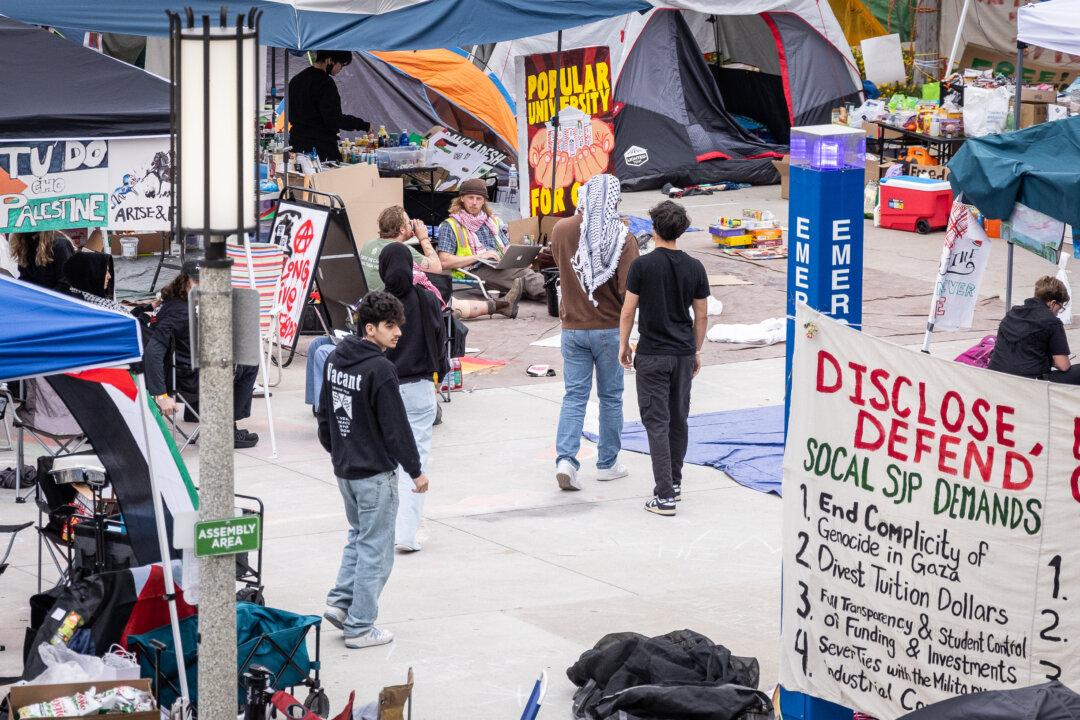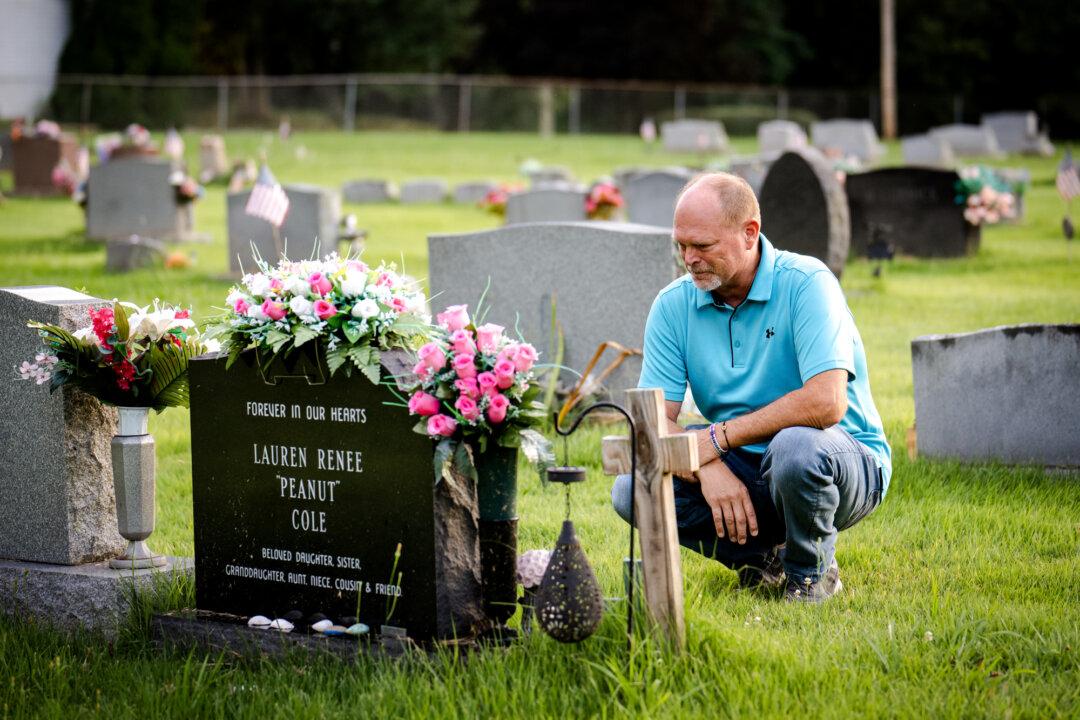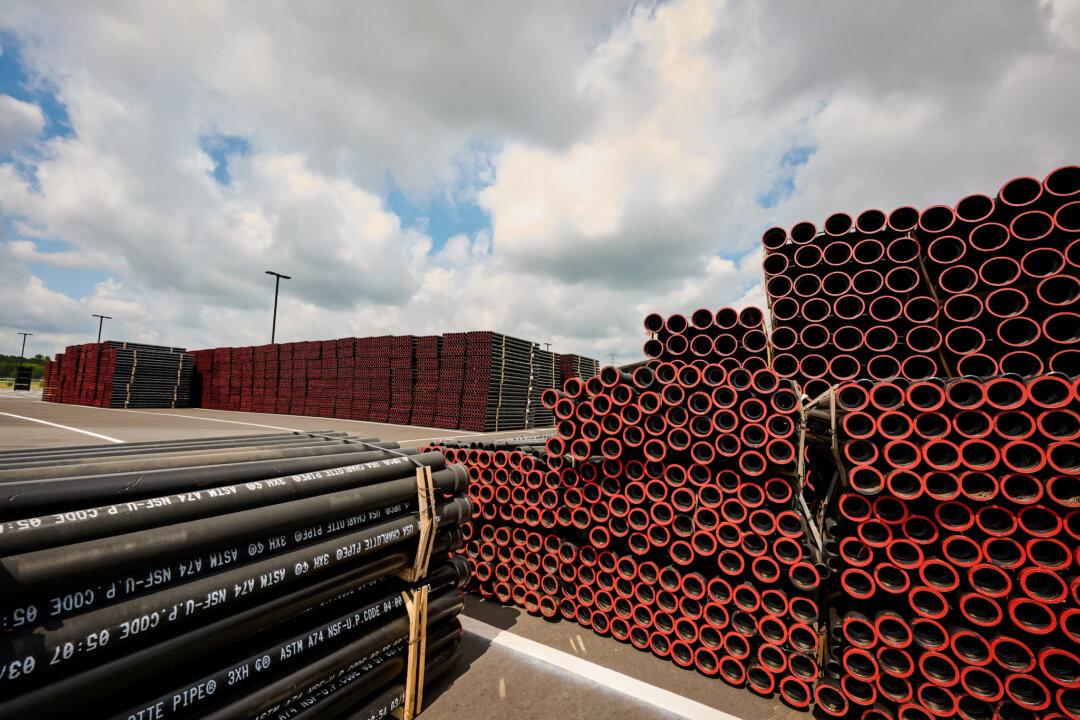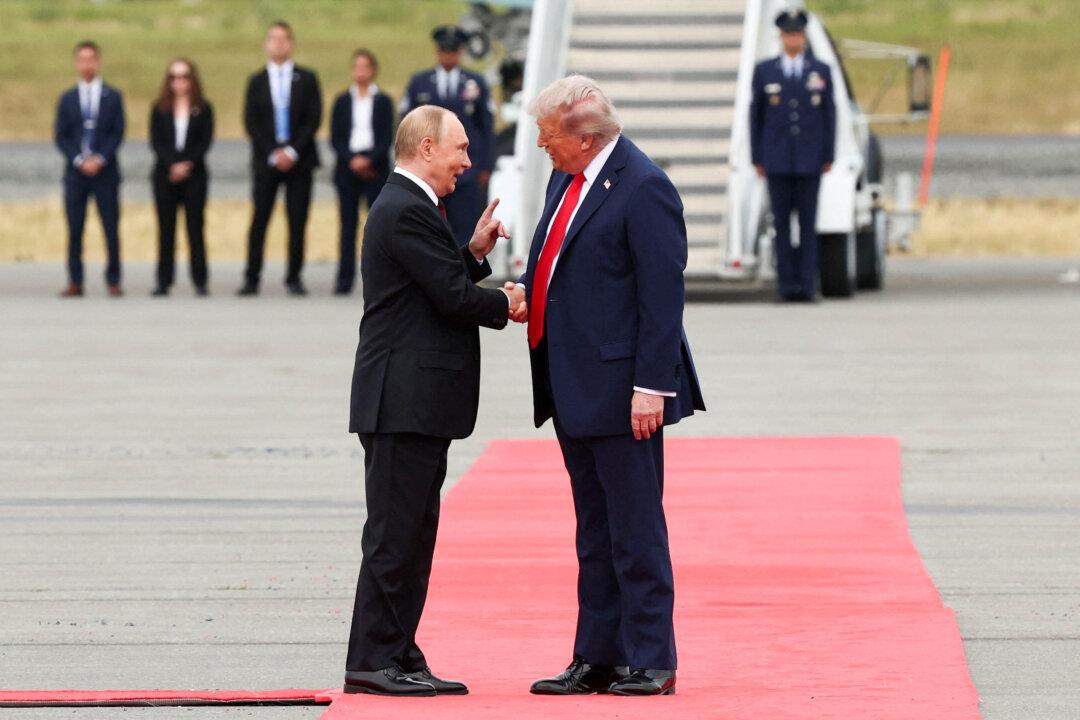As ‘Class of 2020’ high school graduates, their traditional commencement ceremonies were canceled or skewered by a pandemic. As ‘Class of 2024’ college graduates, many are seeing commencement exercises again marred, this time by pro-Palestinian protests and occupations on dozens of campuses across 30 states.
While several universities and colleges have canceled graduation ceremonies—the University of Southern California (USC), for instance—the vast majority of others are moving forward with commencements, although many are doing so with dramatically enhanced security precautions.
Pro-Palestinian groups demanding an end to the war in Gaza and divestment from Israel have embroiled at least 50 universities and colleges across more than 30 states in the largest groundswell of campus unrest since the 1980s anti-apartheid and 1960/70s Vietnam War protests.
As of May 3—the Friday before the first weekend in May—more than 2,200 people have been arrested on university and college campuses in at least 22 states since the April 18 arrests of 108 Columbia University students in New York City on their Morningside campus in Manhattan.
On May 3, after Indiana State Police arrested 30 protesters in an ad hoc campus encampment, a week of commencement ceremonies kicked off for 19,000 graduates.
“Staffers will respond to disruptions, beginning with warnings and requests to respect the importance of the celebrations for our graduates and their families,” the university warned, noting all attending the ceremonies will enter through metal detectors.
Graduation ceremonies are also under way at two of the nation’s largest and most prominent state universities, the University of Michigan and Ohio State University.
Protesters are entrenched in an encampment on the University of Michigan campus but that won’t stop graduation ceremonies that began May 3 at Michigan Stadium in Ann Arbor.
“Commencement ceremonies have been the site of free expression and peaceful protest for decades and will likely continue to be,” the University of Michigan said in a statement.
On May 5, Ohio State University, where more than 30 protesters were arrested during the week, will graduate students in ceremonies at Ohio Stadium in Columbus. All entering the stadium will be screened with metal detectors. Bags, banners, and signs are prohibited.
“Ohio State is not considering canceling commencement at this time and will adjust staffing and public safety plans if needed,” OSU spokesperson Benjamin Johnson said in a statement. “The university does not share details of its safety and security plans, but standard plans have always included a disruption protocol.”
Northeastern University, where 100 protesters were arrested last week, will graduate 50,000 students in May 5 ceremonies at Fenway Park in Boston.
The State University System of Florida confirmed that graduation ceremonies at all 12 of the state’s universities will proceed as planned. Several schools have commencements beginning May 3.
“While we are witnessing a descent into chaos all over the country, under the leadership of Gov. Ron DeSantis, Florida has maintained law and order,” State University System of Florida Chancellor Ray Rodrigues wrote in a letter to university presidents.
“No commencement ceremony should be canceled, or substantively modified, as a result of unruly demonstrators,” he said. “You are authorized to take any steps necessary to ensure the safety of all attendees during the ceremony.”
At Columbia University in Manhattan, New York, and at the University of California in Los Angeles (UCLA)—scenes of some of the most robust protests—officials have requested police remain on campus through graduation ceremonies.
UCLA’s commencement ceremonies remain set for June 13-16, the school said. Nearby rival USC canceled its main May 10 commencement ceremony citing “new safety measures in place. We understand that this is disappointing.”
USC said it will instead host “new activities and celebrations” to ensure graduation events are “meaningful, memorable, and uniquely USC.”
The NYPD will stay on Columbia’s Morningside campus through at least May 17, two days after the university’s May 15 commencement ceremony.
The university did not “want to deprive thousands of students and their families and friends of a graduation celebration,” Columbia President Minouche Shafik told reporters in a mid-week press conference.
“Many in this graduating class did not get a celebration when graduating from high school because of the pandemic,” he said. “We owe it to all of our graduates and their loved ones to honor their achievement. We want to reassure our community who are trying to make plans that we will indeed hold a commencement.”





